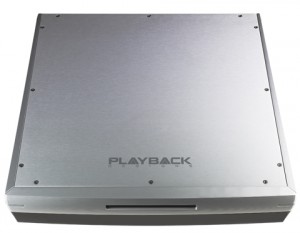DSD - The 'new' format in CAS
Just when I thought I had figured out quite a bit about Computer As Source (CAS) hi-fi and had pretty good knowledge about all this newfangled stuff, something new had to crop up.
The new format touted to be the file format of the future in CAS is actually not new. Confused? Well, I was until I delved more into the subject of Direct Stream Digital (DSD) files.
According to http://dsd-guide.com/dsd-%E2%80%93-new-addiction-andreas-koch, "The term Direct Stream Digital (DSD) was coined by Sony and Philips when they jointly launched the SACD format. It is nothing else than processed Delta-Sigma modulation first developed by Philips in the 1970s. Its first wide market entry was not until later in the 1980s when it was used as an intermediate format inside A/D and D/A converter chips."
So in a way, anyone who has played a CD has heard a DSD file but the data on the CD was in PCM format which was then converted to DSD and then to analogue.
In the studio, songs recorded from the 1980s onwards were converted from analogue to the DSD format before it was converted to PCM format and stored in the optical disk called CD. Many 'master tapes' recorded in the past 30 years and stored in the archives of recording companies are in the DSD format.
Thus releasing these DSD masters is not an issue. The problem lies in getting more audiophiles and ordinary consumers to accept the DSD format and DAC manufacturers to set their DACs to decode native DSD files.
DSD is a single bit recording with a sample rate of 2.8224MHz (64 x 44.1kHz) and this resolution is mostly for SACD production. However, recording equipment offers double that rate at 5.6448MHz (128 x 44.1kHz) and many studios use this resolution for archiving.
Some audiophiles would already be familiar with the DSD format since it is used in SACD discs and pros have already used the format for decades in their studio equipment.
 |
| The next-generation DACs will be like the Playback Designs' MPD5 DAC which can accept PCM up to 24 bit 384kHz and DSD files up to 6.1MHz. |
At the moment, only a handful of companies offer DACs which decode native DSD files streamed from laptops. These companies are:
* Playback Designs (http://www.playbackdesigns.com/). Every product supports DSD, double rate DSD and PCM up to 384kHz via USB.
* dCS: http://www.dcsltd.co.uk/. Support for DSD and PCM up to 192kHz via USB.
* Mytek Digital: http://www.mytekdigital.com/. for DSD and PCM up to 192kHz via USB and Firewire
* Fostex: http://www.fostex.jp/hifi/products/HP-A8 Its DAC/headphone amp HP-A8 decodes DSD from the SD card.
Some music players are offering playback software supporting native playback of DSD files:
* ChannelD Puremusic: http://www.channld.com/. Supports DSD and double rate DSD on Apple Mac.
* Audirvana: http://www.audirvana.com/. Supports DSD on Apple Mac.
* J. River Media Center V. 17: http://www.jriver.com/. Supports DSD and double rate DSD on Windows PC.
* Merging Technologies Emotion: http://www.merging.com/. Supports DSD and double rate DSD on Windows PC. Release planned for early 2012.
The following labels and artistes offer DSD files for download (many more are in preparation):
* Blue Coast Records: http://www.bluecoastrecords.com/
* Japan: http://ototoy.jp/feature/index.php/sound_and_recording
* 2L: http://www.2l.no/hires/index.html
* Wheatus: http://wheatus.com/
* David Elias: http://www.davidelias.com/
* Site where various artists and labels offer high resolution recordings for download, including DSD: http://downloadsnow.net/.
If you are interested in archiving your analogue recordings (tape or vinyl) to the highest quality digital format, double rate DSD @ 5.6448MHz sample rate, then you can use Korg’s (http://www.korg.com/) professional MR-2000s recorder to generate the digital files that then can played back directly with any of the above mentioned playback software.
Those who are keen to know more about DSD can go to http://dsd-guide.com/
They can also get three free DSD downloads from http://audiogate.bluecoastrecords.com/
It's a very exciting time for audiophiles.


Comments
Post a Comment